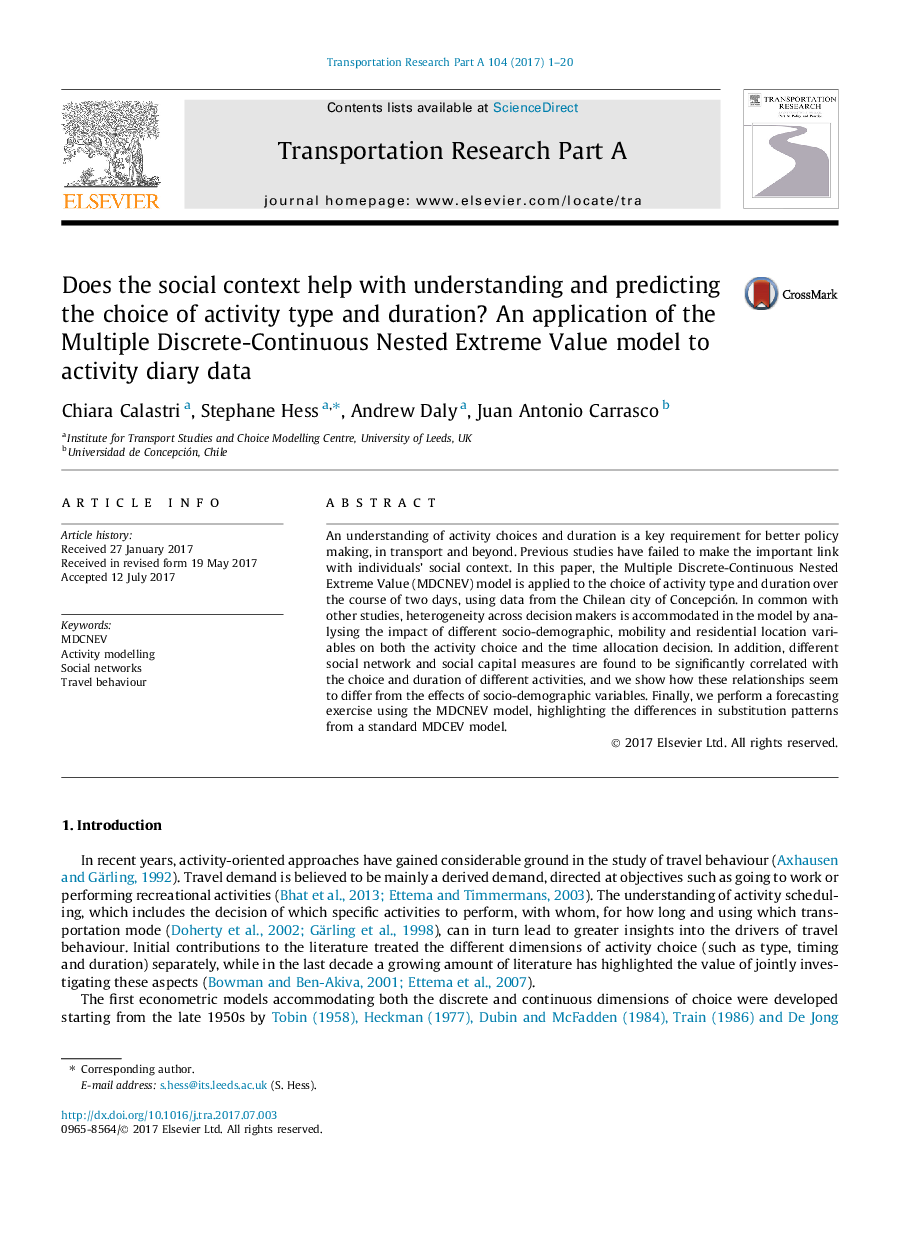| Article ID | Journal | Published Year | Pages | File Type |
|---|---|---|---|---|
| 4928885 | Transportation Research Part A: Policy and Practice | 2017 | 20 Pages |
Abstract
An understanding of activity choices and duration is a key requirement for better policy making, in transport and beyond. Previous studies have failed to make the important link with individuals' social context. In this paper, the Multiple Discrete-Continuous Nested Extreme Value (MDCNEV) model is applied to the choice of activity type and duration over the course of two days, using data from the Chilean city of Concepción. In common with other studies, heterogeneity across decision makers is accommodated in the model by analysing the impact of different socio-demographic, mobility and residential location variables on both the activity choice and the time allocation decision. In addition, different social network and social capital measures are found to be significantly correlated with the choice and duration of different activities, and we show how these relationships seem to differ from the effects of socio-demographic variables. Finally, we perform a forecasting exercise using the MDCNEV model, highlighting the differences in substitution patterns from a standard MDCEV model.
Related Topics
Physical Sciences and Engineering
Engineering
Civil and Structural Engineering
Authors
Chiara Calastri, Stephane Hess, Andrew Daly, Juan Antonio Carrasco,
